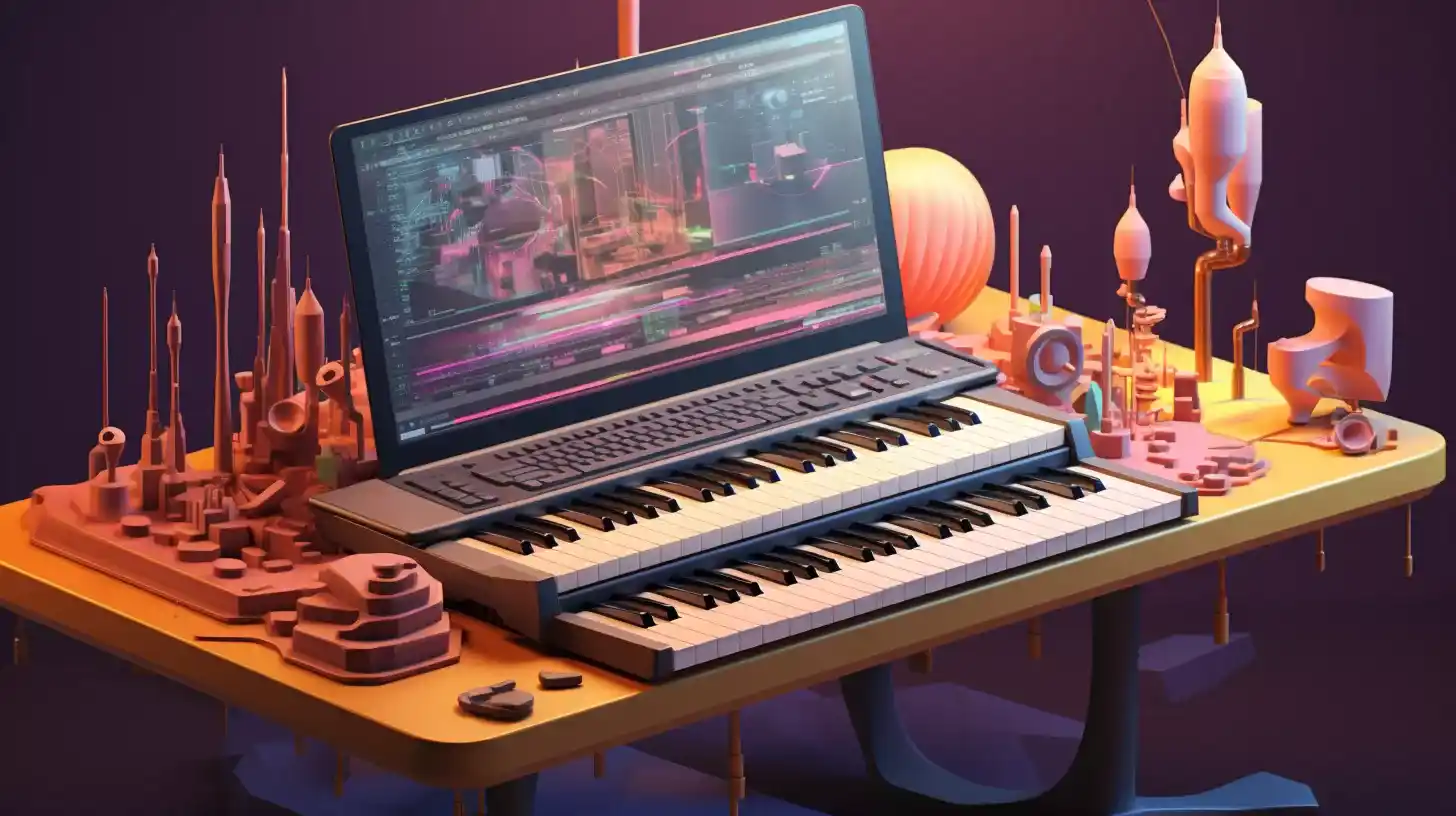Table of Contents
Introduction
In an era where technology and creativity converge, Google continues to push the boundaries with its groundbreaking GenAI tools for music creation. As these tools begin to transform the music industry in remarkable ways, Google is not resting on its laurels.
The tech giant has recently unveiled MusicFX, an upgrade to the previously released MusicLM, enhancing the music-generating capabilities with promises of higher quality and faster music generation.
Alongside MusicFX, Google has also introduced TextFX, a lyrics generation tool, further cementing its commitment to revolutionizing the way we approach music creation.
MusicFX: Elevating GenAI Tools for Music Creation to New Heights
Building upon the success of MusicLM, MusicFX is designed to take AI-generated music to new heights. The tool is capable of creating ditties up to 70 seconds in length and music loops, offering users a “higher-quality” and “faster” music generation experience.
Released within Google’s GenAI tools for music creation Test Kitchen, an experimental platform for users to explore the latest AI-powered systems, MusicFX has been available to select users since December but is now accessible to a broader audience.
Using MusicFX is an intuitive process. Users can enter a text prompt, such as “two nylon string guitars playing in flamenco style,” to describe the desired song. The tool generates two default 30-second versions, with options to extend the tracks to 50 or 70 seconds or automatically loop them.
A noteworthy addition is the inclusion of alternative descriptor suggestions, providing users with genre options related to their prompts, and enriching the creative process.
MusicFX introduces a word cloud of additional recommendations below the prompt field, offering users inspiration for relevant descriptions, instruments, and tempos. This feature enhances the user experience, making the music creation process more dynamic and interactive.
However, as GenAI tools for music creation music advances, distinguishing between outputs becomes challenging. MusicFX’s samples, while technically proficient, may tend towards the uninspired and melodically unfocused. In testing, prompts like “a house music song with funky beats that’s danceable and uplifting” yielded satisfactory results, yet the tracks may lack the depth and inspiration found in the work of human DJs.
Despite the impressive capabilities, limitations arise, particularly with stringed instruments. Tracks generated with prompts like “a soulful melody played on string instruments, orchestral, with a strong melodic core” may fall short, sounding akin to inexpensive MIDI samples. These limitations underscore the importance of continued advancements in training sets to enhance the diversity of AI-generated music.
Moreover, the impact of Seasonal Affective Disorder (SAD) on subjective judgments highlights the need for ongoing research and refinement in the emotional resonance of AI-generated music.

Ethical Considerations and Copyright Protection
As with any technological innovation, ethical considerations come to the forefront. Google, cognizant of potential ethical issues, filters prompts that mention specific artists or include vocals to avoid copyright concerns.
Additionally, the use of SynthID, an inaudible watermarking technology developed by Google’s DeepMind division, ensures transparency regarding the tracks’ origin.
Despite Google’s efforts, challenges persist. While some artist and song name filters are effective, others may be circumvented. The intersection of AI and copyright protection requires ongoing vigilance to ensure a fair and legally compliant landscape for AI-generated music.
TextFX: A Lyrical Companion to MusicFX
In tandem with MusicFX, Google introduces TextFX, GenAI tools for music creation designed as a companion in the music creation journey.
Collaboratively developed with rap artist and record producer Lupe Fiasco, TextFX draws inspiration from Fiasco’s linguistic and lyrical techniques developed throughout his career. Powered by PaLM 2, one of Google’s text-generating AI models, TextFX promises an upgraded user experience and navigation.
Similar to MusicFX, TextFX has been available to a select user cohort and is now accessible to a wider audience. The tool leverages Fiasco’s expertise to generate lyrics that reflect his distinctive style, providing users with a unique resource to enhance their creative lyric-writing process.
Conclusion
Google’s GenAI tools for music creation continue to reshape the landscape of the music industry. With the introduction of MusicFX and TextFX, Google reaffirms its commitment to pushing the boundaries of what AI can achieve in the realm of music.
While challenges and ethical considerations persist, these tools represent a significant step forward in democratizing music creation, providing both amateur and professional musicians with innovative resources to explore new horizons in musical expression.
As the journey into GenAI tools for music creation continues, the fusion of technology and creativity promises to redefine the very essence of musical innovation.